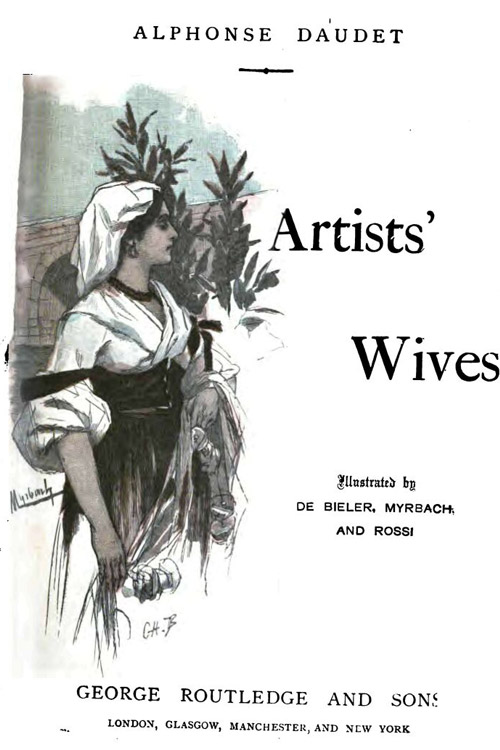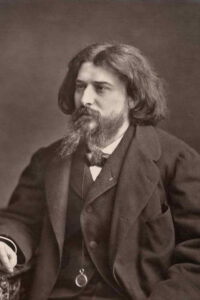
Artists’ Wives
However, he returned to us one day, and we immediately saw he was unhappy. His pallid countenance, drawn features contracted by perpetual irritability, the violent manners degenerated into a nervous rage, and the hollow sound of his once fine ringing laugh all showed that he was an altered man. Too proud to admit that he had made a mistake, he would not complain, but the old friends who gathered around him were soon convinced that he had made a most foolish marriage and that, subsequently, his life must prove a failure. On the other hand, Madame Heurtebise appeared to us after two years of married life, as we had beheld her in the vestry on her wedding day.
She wore the same calm and simpering smile and had as much as ever the air of a shopwoman in her Sunday clothes; only she had gained self-possession. She talked now. In artistic discussions into which Heurtebise passionately threw himself, with arbitrary assertions, brutal contempt, or blind enthusiasm, the false and honeyed voice of his wife would suddenly make irruption, forcing him to listen to some idle reasoning or foolish observation invariably outside of the subject of discussion. Embarrassed and worried, he would cast us an imploring glance and strive to resume the interrupted conversation.
Then, at last, wearied out by her familiar and constant contradiction, by the silliness of her birdlike brain, inflated and empty as any cracknel, he held his tongue and silently resigned himself to let her go on to the bitter end. But this determined silence exasperated Madame and seemed more insulting and disdainful than anything to her. Her sharp voice became discordant and growing higher and shriller, stung and buzzed, like the ceaseless teasing of a fly, till at last, her enraged husband, in his turn, burst out brutal and terrific. She emerged from these incessant quarrels, which always ended in tears, rested and refreshed, as a lawn after watering.
However, he remained broken, fevered, and incapable of work; little by little, his very violence was worn out. One evening, when I was present at one of these evil scenes, as Madame Heurtebise triumphantly left the table, I saw on her husband’s face bent downwards during the quarrel and now upraised, an expression of scorn and anger that no words could any longer express.
Read or download Book
Alphonse Daudet
Alphonse Daudet (13 May 1840 – 16 December 1897) was a French novelist.
Biography.
He was the husband of Julia Daudet and father of Edmée, Léon, and Lucien Daudet. Daudet was born in Nîmes, France. His family belonged to the bourgeoisie on both sides. His father, Vincent Daudet, was a silk manufacturer—a man dogged through life by misfortune and failure. Alphonse, amid much truancy, had a depressing boyhood. In 1856, he left Lyon, where his schooldays had been mainly spent, and began his career as a schoolteacher at Alès, Gard, in southern France.
The position proved to be intolerable, and Daudet said later that for months after leaving Alès, he would wake with horror, thinking he was still among his unruly pupils. These experiences and others were reflected in his novel Le Petit Chose. On 1 November 1857, he abandoned teaching. He took refuge with his brother Ernest Daudet, who was only three years his senior and was trying, “and thereto soberly,” to make a living as a journalist in Paris.
Alphonse took to writing, and his poems were collected into a small volume, Les Amoureuses (1858), which met with a fair reception. He obtained employment on Le Figaro, then under Cartier de Villemessant’s energetic editorship, wrote two or three plays and began to be recognized in literary communities as possessing distinction and promise. Morny, Napoleon III’s all-powerful minister, appointed him to be one of his secretaries — a post he held until Morny died in 1865.






